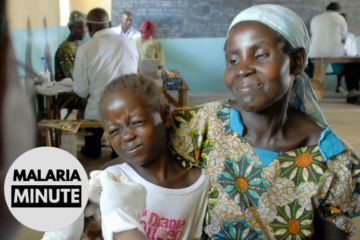The Latest Malaria News, in 60 Seconds.
Researchers detail the role of PI(3)P in preventing heat-shock-induced cell death and the BK-SE36 adjuvanted malaria vaccine is found to be safe, well-tolerated and protective in clinical trials.
Malaria Minute on iTunes and Spotify
Transcript:
Over the course of its lifecycle, Plasmodium falciparum malaria parasites are exposed to different environmental pressures, for example, the high temperatures during the fever episode of human blood-stage infection. Researchers have now found that a particular phosphate – phosphatidylinositol 3-phosphate, or PI(3)P, stabilises the digestive vacuole of the parasite preventing heat-shock-induced cell death. Researchers found that PI(3)P-deficient parasites are not able to cope with the fever’s heat and that a PI3P-binding protein, PfHsp70, is also critical for parasite survival under heat stress.
The results are in from a Phase 1a clinical trial of the adjuvanted malaria vaccine, BK-SE36. The trial involved 26 malaria-naive adults and found that the vaccine is safe, well-tolerated and, when given in two doses 21 days apart, offers great protection.
Sources:
Image Credits: CDC/ Dr. Mae Melvin [17368]
Scientific Advisor: Elena Gómez-Díaz, Institute of Parasitology and Biomedicine, Spain


